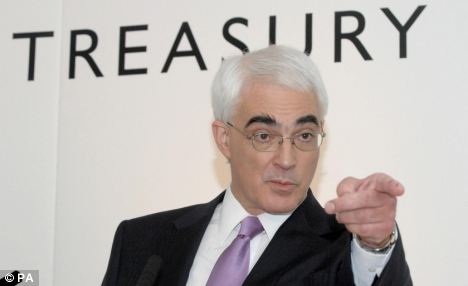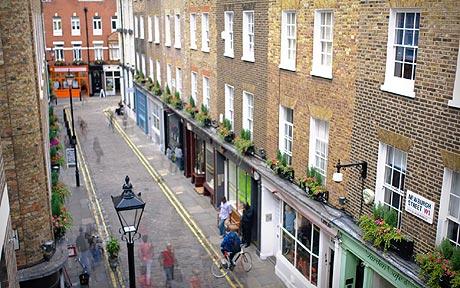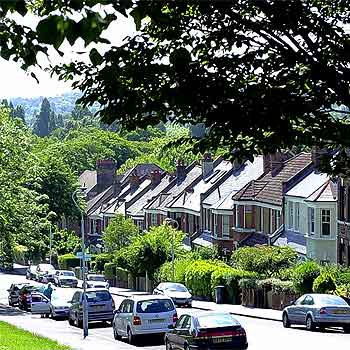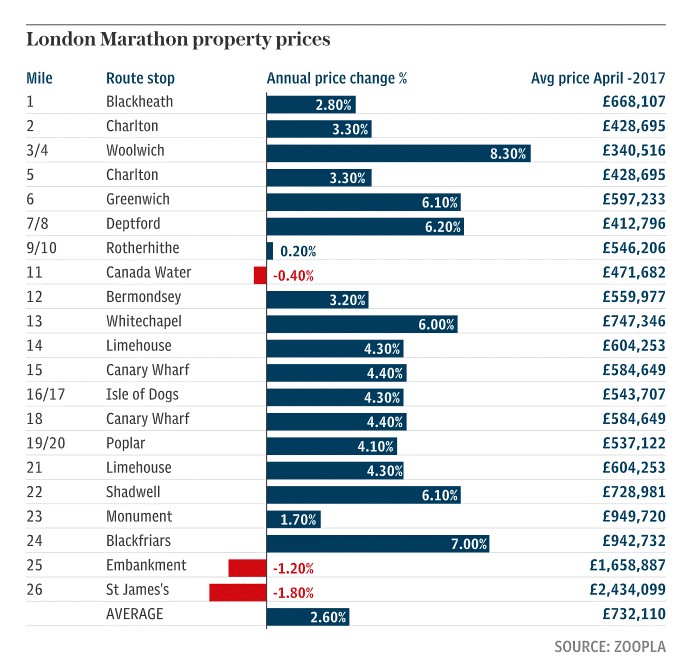311: UK property investing - risks with General Election in May
03-14-2010
 PropertyInvesting.net team
PropertyInvesting.net team
Like most in general election years, the incumbent government normally does all it can to inflate the economy and spend to make the economy look as good as possible before voting commences. This one is no different. The only difference from many years ago is that we now have an independent Bank of England Monetary Committee that sets rates and more recently has decided on the level of quantitative  easing (printing money). Of course they can be influenced by political factors – but this is probably not much and they likely remain objective. It’s very fortunate for the Labour party that the recession was relatively short and deep compared to what was expected after the initial financial crisis in Sept 2008, and just when they needed the economy to start motoring back again, it has done so. House prices rising again has also helped – it’s little wonder though that house prices have risen because of:
easing (printing money). Of course they can be influenced by political factors – but this is probably not much and they likely remain objective. It’s very fortunate for the Labour party that the recession was relatively short and deep compared to what was expected after the initial financial crisis in Sept 2008, and just when they needed the economy to start motoring back again, it has done so. House prices rising again has also helped – it’s little wonder though that house prices have risen because of:
· Record low interest rates
· Almost zero building – lack of supply
· Increases in levels of immigration, and with this
· Increasing population
· Massive printing of money
· Banks starting to lend money again
· City bonuses back – at close to record levels
· All this before the big tax increases in April 2010
· Banking and financial services making profits again –and reducing redundancies
· Inflation rates at moderate levels (for now)

However, like in the elections of old, expect a shock after the election, particularly if the Tory party get into power. The deficit is running at 13% - as bad as Greece’s. UK is in danger of losing its AAA status. If it does, then borrowing costs will rise to cover for this as an insurance premium against a government that could go bankrupt on the downside.
UK voters have a choice – they can either vote for Labour and see high public sector spending levels continue – thence we become an even more indebted nation. Initially, unemployment may be lower – but we will be storing problems up for a few years time. Immigration levels would likely stay relatively high. Stealth taxes and increasing personal taxation for employed individuals and families would be used to fund the continued large public sector. Eventually, many of the most wealthy UK citizens may move abroad to avoid the high tax levels, as happened in the 1970s. Social spending and the safety net would be higher.
Or voters can choose the Tories party that are likely to implement more severe spending cuts, reduce

the size of the public sector and make it more efficient, and increase the size of the private sector in the hope this leads to more tax revenues and lower overall tax levels. Unemployment would likely rise initially, then drop back in a year or so as the private sector is rejuvenated. It’s possible after a few years that the 50% income tax bracket would be reduced back to 40%. There would be less major infra-structure projects. Less regulation. A simpler more understandable tax system. The health service would become more efficient but the level of spending would be less and service level probably slightly reduced. The Tories would be harder on crime. They would likely put a cap on immigration levels. There would likely be new initiatives to tackle our dependence on oil and gas imports as production levels for the North Sea drop at 5% per annum – tax breaks for offshore drilling to try and stimulate development and stem the decline. Stamp duty would not rise further.
Both parties would continue to increase taxes on petrol, alcohol and cigarettes. Overall, the Labour party would most benefit northern and western areas. The Tories party would most benefits “middle England”, London and south of England. The Labour would benefit the public sector. The Tories would benefit the private sector.
These are general trends only – we have tried to be objective – this is what we believe would happen. You won’t hear it though on the campaign trail – since much of it could be construed as unpopular.

For the individual property investor that is probably also a salaried employee (subject to high earned income tax), it’s pretty obvious which party would benefit these individuals, particularly if they invest in southern parts of England. If you are a property investor in the north that provides public sector rental accommodation, then it’s possible you might think twice. In any case, you need to get to dig to the route of your personal values before deciding. We merely address this with a view to property investment and managing risk-returns.
But be careful after the election – the only scenarios that is very rosy is an outright Tories victory for property investors in London and southern England. All the other scenarios are not particularly attractive. Tough treatment would be expected in all cases for northern areas – initially if the Tories get in, and eventually if Labour get in and we lose our AAA status.
The USA has really huge problems with its deficit and levels of spending – and the current US government does not seem to realise you cannot just keep spending willy-nilly. You have to pay back debts eventually. As the US economy implodes over the next few years, this will also have a knock on impact for the UK since about 25% of our trade is either directly or indirectly with the US (by 2013 we think there could be a severe recession in the US and a change of administration, one that understands the basics of managing a large economy).

As oil prices rise again as we think very likely, all European countries apart from Norway (and Russia) will suffer massively increasing deficits. And another recession would then commence. Oil above $150/bbl would lead to the Euro breaking up – since too many countries would get into financial trouble and Germany and France would not be strong enough to bail them all out (countries such as Greece, Italy, Spain, Portugal and Ireland – all countries with weak manufacturing and gigantic oil/gas/coal import bills). At least the UK still produces 65% of its oil and gas needs – but this also highlights how poorly we have done – we have practically no manufacturing left, have a massive public sector and are therefore reliant on financial-business services to generate the tax revenues. A dangerous place to be.
We don’t think the Tories will get an outright majority. It’s looking more like either a hung parliament or a Labour victory. And we expect that the end of printing of money will make borrowing more difficult later in 2010. As China and India continue to suck on oil for their massive industrialisation, and people realise Peak Oil did actually arrive July 2008 after all, oil prices will rise over $100/bbl by end 2010 and its then likely another mini financial crisis will take hold in western developed nations. Where do you think all the fiscal stimulus is going in the USA for instance – its going into inflating the stock market, and speculation on commodities – with banks refusing to

lend and instead playing the risk game on the stock markets. Why else would US companies value be 40% higher after a year, when the deficit is massively increasing and tax revenues are decreasing. It’s about to implode – stay well away from the US stock market. And the UK stock market also looks dangerous to us (unless possibly it’s in international commodities or exposure to fast growing international markets like China and India).
Don’t expect China to be too worried about western nations dipping back into recession if oil prices rise - their economy has such a huge momentum that even in the biggest global recession since the 1930s, their economy GDP never dropped below 7%. They are developing a consumer lead society that feeds o
n itself - internally. The USA will be less important – so when it drops into a recession (because of high oil prices and too much spending), many developing nations won’t notice too much. The Middle East will also look east for trade. They don’t export much crude to the USA in any case – so dropping US oil demand will not affect them as it used to.
 So for property investors, end 2010 should be very interesting. We recommend not investing this Spring and waiting to see what happens by December 2010. If another recession looks likely if oil prices are high (>$100/bbl) – then bargains will be available end 2011 and 2012 as property prices drop and interest rates rise. In the highly unlikely scenario that oil prices stay below $80/bbl and the Tories get into power – if you are investing in London and southern England – it’s a green light to continue building your portfolio – ideally:
So for property investors, end 2010 should be very interesting. We recommend not investing this Spring and waiting to see what happens by December 2010. If another recession looks likely if oil prices are high (>$100/bbl) – then bargains will be available end 2011 and 2012 as property prices drop and interest rates rise. In the highly unlikely scenario that oil prices stay below $80/bbl and the Tories get into power – if you are investing in London and southern England – it’s a green light to continue building your portfolio – ideally:
· Small Victorian houses close to excellent rail and/or tube communications
· Central London flats – in regeneration areas (Nine Elms, Borough, E&C, Brockley, Stratford, Bow, Hackney, Cricklewood, Brentford, Peckham, East Dulwich)
· Prime London areas – for bankers and international market (e.g. Soho, Chelsea, Mayfair, Bayswater)
· Middle class houses in commuter towns with fast rail links to London (e.g. Woking, Guildford, Bedford, Ebbsfleet-Gravesend-Southfleet-Bean, Cambridge, Oxford, St Neots)
· Second homes in southern England if the Tories get into power

Remember there is a shortage of houses – these are more expensive to purchase and rental yields are often lower with higher maintenance bills, but if you can manage with your cashflow, superior capital gains will be achieved as more flats are built and less houses are available with an expanding population – the British like living in houses with a garden and garage (or parking). Also, a recent survey indicated 90% of British people still aspire to own their own homes – a level that has stayed remarkably constant (dipped from 90% in 2004 to 87% in early 2009) over the years.
If Labour get back into power and you live in the north, Wales or Scotland – probably best to focus on property close to high paid government jobs in Cardiff or Edinburgh. Regenerating areas close to services sector and public sector central city jobs in Manchester, Leeds and Bradford might also be worth considering – though these could take a hit in a few years time when the money well and truly dries up (if it has not already by then).

Only other comment for now is to keep an eye on the high speed rail developments. If the plan to build a new link between London and Birmingham take off (more likely with a Labour win), then the area around Birmingham International Airport (new station) could be worth a look. Birmingham International to Euston would be 49 minutes - certainly enough to impact property prices. We give the project a 35% chance of going ahead at this stage, likely completion 2023. So no use getting too excited just yet.
More relevant is:
· Crossrail – completion 2017 (90% certain, just possible the Tories could cut part or all of this project)
· East London Rail – opens this year from Highbury via Shoreditch to New Cross then Croydon
· Olympics 2012 – Stratford (Bow, Plaistow, Hackney Wick)
· Dockland Light Railway extension – finished 2009 to Woolwich
· City Airport – start of flights to holiday destinations in 2010 – boost for Silvertown, Woolwich, Limehouse, Canary Wharf, Shoreditch, Bow, Stratford and eastern London
We hope this Special Report is helpful for UK property investors to frame some of the risks and opportunities – with the aim to help boost your investment returns and safeguard your property portfolios. If you have any questions or comments, please contact us on enquiries@propertyinvesting.net.


